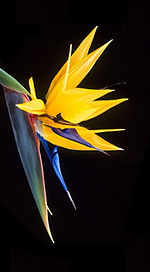Translation requests/WQ/2/Hu:
A hírlevél leírásáért és annak megvitatásáért lásd: Wikimedia Newsletter.
A fordítási kérésekért lásd: Translation requests/WQ/2.
Üdvözlet |
Alapító |
Jelentések |
Projektek |
Interjú |
Sajtó |
Nemzetközi |
Záró megjegyzések |
1
[edit] |
|
|
Jimmy Wales, Founder
Editor-in-Chief
Az írásban közreműködtek:  |
-- a WQ szerkesztő csapat
Címlap : Enciklopédia szerkesztés ( ) |
2
[edit]

This has been a very exciting year for Wikimedia, and much more is coming next year!
It seems as though it was years ago when we were almost completely offline for three days, because we had only three servers and two of them crashed with motherboard and hard drive problems. But, this was just last year at this time. Today, we have 40 servers and more on the way.
In this year, we have gone from a site half-afraid of being featured on the computer news site Slashdot because we weren't able to cope well with the traffic, to being a site that hardly notices when we are 'Slashdotted'.
But our growth has not slowed, and may even be accelerating. We've done something that is unprecedented, and is widely inspiring people about the first dreams of what the Internet could be: people sharing knowledge, giving it away for free, working together to create the tools that people need to make this a better world.
No one can say exactly what the new year will hold for us, but some of the developers are suggesting that if we continue on our current growth course, we will be a top-100 or top-50 site by the end of this year, and we will need hundreds of servers. This growth would be exciting for anyone, but for us it is particularly exciting because of how we have done it: in a way that no one would have ever imagined possible... hundreds of volunteers collaborating in a loose and vaguely anarchistic fashion to do something we really believe in.
How will we handle this growth? In the same way that we have handled things in the past: through careful, thoughtful deliberation in which we look to find the best ideas from whatever source. We need to identify areas in which we need the most help, and actively seek that help.
For example, demands on developer time are becoming substantial, and so we need to recruit and retain new developers. This can be harder than recruiting new authors, because new developers have to learn a lot more before they reach maximum productivity. For another example, we know that there are systemic biases in Wikipedia, and so we need to think about how to reach out to authors who are interested in different topics than our existing community members are.
I ask everyone to make a resolution for the New Year to think about how to handle this growth and, especially, how we can reach out to find the help that we need. If every active volunteer can go out and find one person who could bring something new to our community, we would have a great increase in our ability to grow while maintaining and improving.

3
[edit](nincslefordítva)
|

|
|
4
[edit](nincslefordítva)
 The biggest question probably was whether the success of Wikipedia could be replicated for news production. Many of the experienced Wikimedians worried that biased news, incompatible with our policy of neutral point of view, might be released in the much shorter cycle of work that is news production. Conclusive answers to these questions have not yet been discovered, although we have seen significant progress on the project. Wikinews has now entered the "beta" phase. It is still in its formation phase but its existence as a Wikimedia project is now generally accepted. Erik wrote an essay reflecting on the project's past and future, and pointed out that the formal review process is being reconsidered and redesigned leading to a simpler, free-flowing mechanism. There is tension between making the site more newcomer-friendly by simplifying rules and procedures, sticking to the wiki principle of "anyone can make any edit", and imposing quality assurance measures - a formal review process with a specific set of rules to follow. Publication of unreviewed and incomplete stories on the main page has likewise been discussed. Some active users, including IlyaHaykinson, TalkHard, and Lyellin, have written at length on the topic. Considering that around half of the new contributions are written in the area of politics and conflicts, it is quite normal to worry about bias and accuracy. Some think that we should emphasize in-depth coverage like that of weekly news publication rather than breaking news, and spend more time on quality control. Calrosar, one of the many active participants on Wikinews and a participant in many discussions of article neutrality, observes that Wikinews is getting better and producing positive results. Nevertheless, the project faces great challenges. Many have said that creating a truly free, open and neutral news source would be more difficult than even the creation of a free encyclopedia. We welcome all editors on other Wikimedia projects to come by, participate in discussions, write articles, and help build the communities that we have already started. URLs: Wikinews insiders' views
Media and slashdot
Stats: |
|
|
| |
| WQ/2/chapters/Hu |
|
|
|
5
[edit]The Quarto caught up with [Lessig] on the way to ... In between cans of Moxie, we picked his brain about the evolution of wiki, copyright, and the Wikipedia community.
6
[edit]
7
[edit]
|
|
|
A collection of some of our most beautiful content
WQ/2/Gallery/Hu

